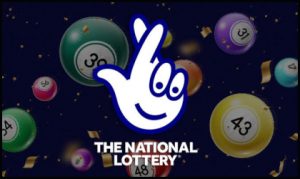In the United Kingdom and the Gambling Commission regulator has announced that it has levied a fine of £3.15 million ($4.17 million) against Camelot Group after finding failures linked to the lottery operator’s mobile-friendly app.
The watchdog used an official press release to detail that the Watford-headquartered offender has run the country’s National Lottery since 1994 but was recently beaten to the ten-year license to operate the service until February of 2034 by the Allwyn UK subordinate of European lotteries giant Sazka Group. The successful bidder is already in charge of analogous games in Austria, Greece, Italy and the Czech Republic and was preferred after it pledged to slash the price of tickets back to their £1 ($1.32) standard and double charitable donations over the next decade to at least £38 billion ($50 billion).
Fawlty facility:
The Gambling Commission declared that Camelot Group will now be required to pay its fine in cash to a range of ‘good causes’ after an investigation uncovered a trio of failures in its mobile-friendly app that had ‘negatively impacted consumers’. The regulator noted that the first shortcoming had occurred over the course of the 46 months from November of 2016 and seen as many as 20,000 lottery aficionados using the innovation’s quick response (QR) code scanner incorrectly told that their winning draw-based tickets had been unsuccessful.
Double dipped:
Regarding the second breach and the Gambling Commission disclosed that the National Lottery app from Camelot Group had charged 22,210 lottery aficionados for purchasing two tickets when they had bought only one. To make amends and the regulator stated that the operator subsequently refunded players who had been incorrectly burdened or, in the case of winning picks, honored the wagers ‘on a duplicate basis’.
Shaky solicitation:
Finally, the Gambling Commission proclaimed that the National Lottery app from Camelot Group had furthermore been found guilty of sending out marketing messages to some 65,400 punters who had either exhibited ‘signs of gambling harm’ or were members of the nationwide Gamstop self-exclusion program. However, the watchdog went on to divulge that none of these people had subsequently been permitted to purchase lottery tickets using the mobile-friendly advance.
Regulatory remit:
Andrew Rhodes serves as the Chief Executive for the Gambling Commission and he used the press release to pronounce that Camelot Group had ‘taken steps to make sure that its National Lottery app is fit for purpose’ but any failures must ‘be met with consequences’.
Read a statement from Rhodes…
“Today’s announcement reinforces that any operator failing to comply with their licence requirements will be investigated by the Gambling Commission and we will not hesitate to issue fines if requirements are breached.”



